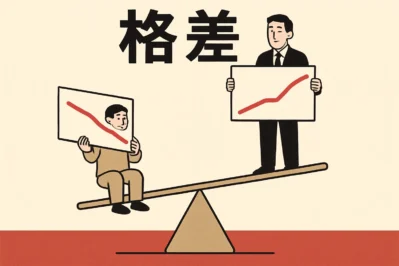Level Up Your Korean: Discussing Social Gaps in Korea
Hello! It’s your favorite Korean guide, [Maeil Hangeul], here to level up your language skills!
Ready to move beyond small talk and dive into deeper conversations? Today, we’re tackling a topic that will help you understand Korean society on a whole new level: social inequality. Lately in Korea, a new government report has sparked a huge conversation online about the “life expectancy gap” (수명 격차) between different income levels. If you want to understand these news articles, participate in thoughtful discussions, and sound like an educated native speaker, this lesson is for you!
Let’s learn the essential expressions to talk about this important social issue.
Core Expressions You Need to Know
Here are the key phrases you’ll find in reports and news articles on this topic.
1. 격차 (gyeok-cha)
- Pronunciation: [gyeok-cha]
- English Meaning: Gap, disparity, divide
- Detailed Explanation: This is a crucial noun for discussing any kind of inequality. It can refer to a gap in income (소득 격차), education (교육 격차), or as in our theme today, life expectancy (수명 격차). It’s a slightly formal word, perfect for written reports or serious conversations.
2. 소득 수준 (so-deuk su-jun)
- Pronunciation: [so-deuk su-jun]
- English Meaning: Income level
- Detailed Explanation: This is a compound word made of
소득(income) and수준(level). It’s the standard, formal way to refer to how much money someone earns. You’ll see this term constantly in economic news and social reports.
3. -(으)로 인해 (-(eu)ro in-hae)
- Pronunciation: [-(eu)ro in-hae]
- English Meaning: Due to / Because of (formal)
- Detailed Explanation: This grammar pattern is used to state a reason or cause, similar to
-때문에. However,-(으)로 인해is much more formal and is typically used in writing (like news articles, reports, academic papers) and formal presentations. It connects a noun (the cause) to a result.- Use
-로 인해after a noun ending in a vowel or ㄹ. (예: 코로나로 인해) - Use
-으로 인해after a noun ending in a consonant. (예: 환경오염으로 인해)
- Use
4. -는 것으로 나타나다 (-neun geo-seu-ro na-ta-na-da)
- Pronunciation: [-neun geo-seu-ro na-ta-na-da]
- English Meaning: It is found that… / It appears that… / The findings show that…
- Detailed Explanation: This is a classic phrase for presenting data or findings in an objective, fact-based way.
나타나다means “to appear” or “to emerge.” When used in this pattern, it conveys that a certain fact or situation has been revealed through research, a survey, or a report. It’s a must-know for reading any kind of official Korean document!
Example Dialogue
Let’s see how these expressions are used in a real conversation. Two friends, Min-jun and Sarah, are talking about a news article.
A (Sarah): 민준 씨, 소득에 따른 수명 격차에 대한 뉴스 기사 봤어요? 정말 충격적이에요.
Min-jun, did you see the news article about the life expectancy gap according to income? It’s really shocking.
B (Min-jun): 네, 저도 봤어요. 낮은 소득 수준으로 인해 건강 관리를 제대로 받지 못하는 사람들이 많다고 해요.
Yes, I saw it too. It says there are many people who can’t get proper healthcare due to their low income level.
A (Sarah): 맞아요. 보고서에서는 소득이 높을수록 기대 수명이 길어지는 것으로 나타났어요.
That’s right. The report showed that the higher the income, the longer the life expectancy.
B (Min-jun): 이 격차를 줄이기 위한 사회적인 노력이 정말 필요해 보여요.
It really seems like social efforts are needed to reduce this gap.
Culture Tip & Trend Deep Dive
This topic of social inequality might seem heavy, but it’s a very real and passionate conversation happening in Korea right now. You might have seen it explored in world-famous Korean content like the movie “Parasite” (기생충) or the drama “Squid Game” (오징어 게임).
When you read Korean news (뉴스) or official reports (보고서), you will see the formal grammar patterns we learned today, like -(으)로 인해 and -는 것으로 나타나다, everywhere. Using them correctly will instantly make your Korean sound more sophisticated and educated.
Understanding vocabulary like 격차 (gap) and 소득 수준 (income level) is key to unlocking a deeper understanding of the social concerns of modern Korea. It shows you’re not just learning the language, but also engaging with the culture and society.
Let’s Review & Practice!
Great job today! We learned how to discuss the important social issue of inequality using four key expressions: 격차, 소득 수준, -(으)로 인해, and -는 것으로 나타나다.
Now, let’s test your knowledge!
1. Fill in the blank:
보고서에 따르면, 교육 수준의 ( _______________ )가 소득 차이로 이어지는 것으로 나타났습니다.
(According to the report, it was found that the _______________ in education level leads to income differences.)
Answer: 격차
2. Make a sentence:
Try to create your own short sentence using
-는 것으로 나타나다. For example, think about a simple survey. “A survey showed that many students like K-Pop.”
Now it’s your turn! What do you think about this issue? Try using one of today’s expressions and leave a comment below! We’d love to hear your thoughts.






